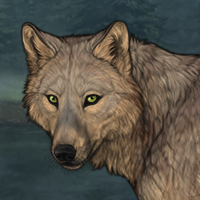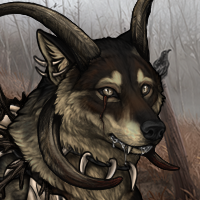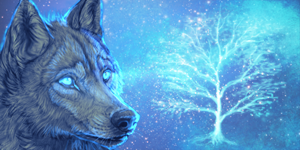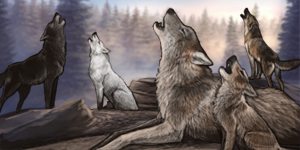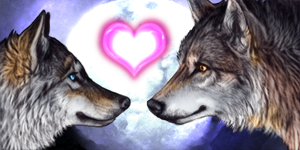M00nShIn3 Pack
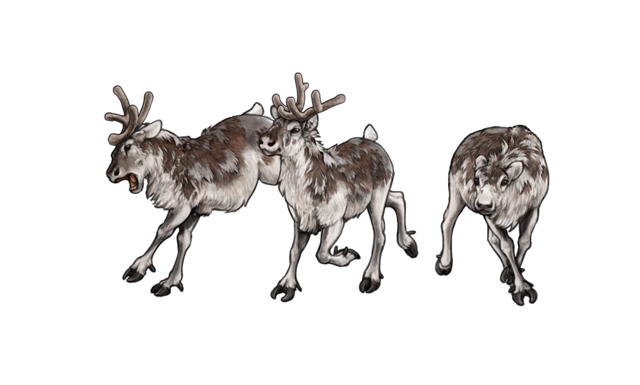
◆
𖤓 - aggressive ; ꩜ - friendly ; 𔘓 - romantic ; ★ - stoic
♀ - she/her ; ♂ - he/him
✾ - herbalist ; ➴ - hunter ; ❀ - mentor ; ☁︎ - pupsitter ; ✰ - scout ; X - no role
◆
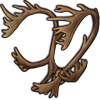
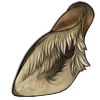
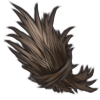
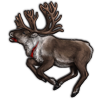

code by #202
Welcome!
TᕼE ᑭᖇIᗰOᖇᗪIᗩᒪ GᖇEEK GOᗪS
Greek mythology starts at the beginning of the world! The Greek Gods that existed then were the Primordial Gods. The famous work of Hesiod, called Theogony (meaning "birth of the Gods" in Greek), presents a complete cosmogony. Natural forces are personified and the most basic components of the cosmos are Gods.
According to Hesiod, in the beginning there was Chaos. Chaos was the personification of the absolute nothingness - an immerse, dark void from which all of the existence sprang. Out of Chaos came Eros, the god of love and procreation. We can see that ancient Greeks considered love as one of the most fundamental powers in the world. Then Tartarus was born, a dark place like the abyss and the original god of the Underworld. Goddess Gaia then followed, the personification of Earth. Erebus, the god of darkness, and Nyx, the goddess of the night, were also born from Chaos. From Gaia came Ourea, the god of the mountains, Pontus, the god of the sea, and Uranus, the god of the heavens.
TᕼE TITᗩᑎ GOᗪS
According to Greek mythology and the ancient Greek religion, the Titans were the pre-Olympian gods. Their parents were Gaia (Mother Earth) and Uranus (god of heavens). They had two other species as siblings, born also from the union between Gaia and Uranus: the Hecatoncheires (meaning "hundred-handed ones") and the Cyclops (meaning "circle-eyed").
ᕼOᗯ TᕼE TITᗩᑎS ᗷEᑕᗩᗰE TᕼE ᖇᑌᒪEᖇS Oᖴ TᕼE ᗯOᖇᒪᗪ
The first Titans were twelve; six male and six female. The youngest one was Cronus. At some point, Uranus decided that he did not like the Cyclops and the Hecatoncheires at all. He considered them too ugly and too powerful, so he imprisoned them in Tartarus, the depths of the Underworld. Gaia, the mother of the Cyclops and Hecatoncheires, did not like how Uranus treated her children. She became furious with Uranus and decided to take revenge. She asked her other children, the Titans, to cut Uranus's genitals and overthrow him… The Titans were too afraid to do that, except one: the youngest of the twelve, Cronus. When Uranus approached Gaia, Cronus surprised Uranus and cut his genitals with a scythe. Cronus with his action had separated Uranus (the heavens) and Gaia (the Earth).
From the drops of Uranus' blood that fell on Gaia, the Erinyes (Furies), the Meliai and the Giants were born. The Erinyes were deities of vengeance. If you broke an oath or wronged someone, they would hunt you forever. The Meliai were nymphs of the trees, beautiful and gentle deities. The Giants were creatures of immerse strength and very aggressive.
With Uranus defeated, Cronus freed his siblings from the dark Tartarus and the Titans became the new Greek gods. They immediately recognized Cronus as their leader and ruler of the cosmos and helped him consolidate his power. After becoming the undisputed ruler of the world, Cronus, fearing the power of the Hecatoncheires and the Cyclops like his father did before him, imprisoned them once again in Tartarus. The Titans represented for the Ancients the forces of nature as well as natural phenomena. These forces ruled the world from the earliest times of creation. Only Themis and Mnemosyne represented more mental states, justice and memory. During the battle of the gods that followed (the so-called "Titanomachy"), Themis and Mnemosyne were the only two of the first Titans that did not side with their siblings in their war against the Olympians, and continued their course alongside the Olympian gods. When Rhea became pregnant with the 1st child of Cronus, Uranus prophesized that Cronus' children will overthrow him as he overthrew Uranus. When Rhea gave birth to their first child, Hestia, Cronus could not get Uranus' prophecy out of his mind. Overcome with fear and madness, and trying to avoid the fate his father had, he swallowed the newborn! The same happened to their next four children; Cronus devoured all five of his newborns! The only one who survived was the sixth and youngest child, Zeus. Rhea tricked Cronus into eating a rock instead of the baby and left Zeus to the island of Crete, to be raised away from his mad father. Zeus grew older and stronger and eventually sought to free his siblings, leading to the epic battle between the Titans and the Olympians who the latter eventually won thus, overthrowing the previous generation of Greek gods.
It is worth noting that there were many more Titans than the aforementioned, descendants of the first twelve.
ᖴOᑎT GEᑎEᖇᗩTOᖇ
The Gods of Olympus were the main Greek gods who lived on the top of mount Olympus. The Olympian gods rose to power by defeating the Titans in the War of the Titans (also called the Titanomachy). They were the children of Cronus and Rhea. Zeus, Poseidon, Hera, Hestia and Demeter, Hades, and later on Apollo, Artemis, Hermes, Athena, Hephaestus, Aphrodite and Ares. Over the years, the Demi-god Dionysus became part of their group on Olympus.
It is very common to refer to the Greek pantheon as "the 12 Olympian Gods". However, the ancient Greeks did not worship specific twelve gods. Instead, there were many more, major and lesser - but nonetheless important - gods and others that were worshiped locally.The rule of Zeus was not absolute. To obtain it, Zeus and his kind had to wrestle with the Titans and then with the Giants. The Battle of the Giants was more formidable and lasted more years. The greatest Olympians took part in the battle. The Giants were not as immortal as the Titans. But they had tremendous power and a monstrous form. After a long and ferocious war, the Greek gods managed to defeat all Giants with the help of Zeus' demi-god son, the hero Hercules. The Olympian gods had the same inclinations and the same desires, the same flaws and strengths as the mortals, even sometimes living in similar conditions. They looked like humans, but they were, almost always, prettier and stronger than humans. The gods could be transformed as they wished or teleported to any place they wished to. This was also a motivation for the famous Greek hospitality, which was a very important institution in ancient Greece. The Greeks would always welcome with special joy any foreigner, who could, after all, be a god in disguise. As can be seen from many myths, the gods of the Greeks were not indifferent to humans. On the contrary, they often came in contact with them, traveling secretly, transforming themselves into ordinary people, rewarding the good and punishing the unjust. The gods did not find a better way to be happy than to live as humans. But they were freed from two great sufferings of mankind: the fear of deprivation and the fear of death. Indeed, the privilege of the gods is carefree. They never think about illness, old age, death. The nectar, the wine of the gods, and the ambrosia, the divine food of Olympus, ensure beauty, health and happiness for the immortals.
The immortal Greek gods settled on the peak of Olympus. There, they built their divine palaces and from there they looked upon the whole world. The ancient Greek religion is based on wisdom. People admired the gods immensely, without envying them. Famous temples were built for them and famous works of art were inspired by them. The gods reflected the ideals of the ancient Greek people.
Pack Rules
- The leader, who is designed by the game, has the highest rank.
They are the most powerful wolves in the pack. Together with the scouts, they patrol and defend the territory of the pack.
A wolf must be a scout and or leader's offspring to become a leader.
- Scouts are the second rank.
They are the apprentices and deputies of the Leader. They must be strong enough to learn how to be a leader and to fight the intruders and predators with the leader.
They should either be 4+ years old, or be a genius who was trained to be a scout when they were a pup. They don't have to be the leader's offspring.
- The pupsitters & pups are in the third rank.
There are only three permanent pupsitter's allowed
- The hunters are in the fourth rank.
They are the majority of the pack and cover all ages.
If a hunter is outstanding, they may be promoted to scout when they are old enough.
- Adolescent are the lowest rank.
The adolescents are also ranked internally. Typically, the leader's direct offsprings are higher than others, and scout's apprentices are higher than hunters and herbalists.
The rules are from Trez #79784 and will be taken down at owners request <3
Trez's Rules For A Semi-Realistic Pack
Important Information
- Stalker = smart/wis, Chaser = agi/speed, and finisher = str/agi
- Wolvden Personality Chart
| Alpha Olive | ||||||||||||
|---|---|---|---|---|---|---|---|---|---|---|---|---|
|
